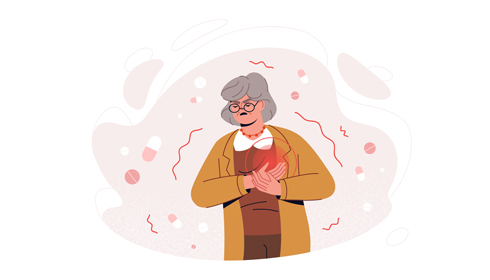
Women are twice likely to die after a heart attack than men, finds study
Women are more than twice as likely as men to die following a heart attack, researchers of a new retrospective observational study presented recently at Heart Failure 2023, a scientific congress of the European Society of Cardiology (ESC).
Pointing out that women of all ages who experience a heart attack (myocardial infarction) are at exceptionally high risk of a poor prognosis, study author Dr Mariana Martinho of Hospital Garcia de Orta, Almada, Portugal, said, “These women need regular monitoring after their heart event, with strict control of blood pressure, cholesterol levels and diabetes, and referral to cardiac rehabilitation.”
“Smoking levels are rising in young women, and this should be tackled, along with promoting physical activity and healthy living,” she added.
Previous studies have found that women with ST-elevation myocardial infarction (STEMI), which occurs when one or more of the coronary arteries that supply blood to the heart become blocked, have a worse prognosis during their hospital stay than men, owing to their advanced age, other comorbidities, and less use of stents to open blocked arteries.
Building on these findings, the researchers investigated short- and long-term outcomes after STEMI in men and women and whether there were any differences in premenopausal and postmenopausal women.
The study included 884 patients of an average age of 62 years, of whom 27% were women. The average age of women participants was 57 years, compared to that of 60 years in men, the researchers noted in their presentation.
The study also found that, while men were more likely to smoke and have coronary artery disease, and while the time between symptoms and treatment did not differ between men and women, women under the age of 55 had a significantly longer treatment delay after arriving at the hospital than their male counterparts.
After adjusting for factors that could influence the relationship, such as diabetes, high cholesterol, hypertension, coronary artery disease, heart failure, chronic kidney disease, peripheral artery disease, stroke, and family history of coronary artery disease, the study found that at 30 days, 11.8% of women had died, while the mortality rate was 4.6% in men.
According to the researchers, the study further revealed that 34.2% of women experienced major cardiac adverse events (MACE) within five years compared with 19.8% of men.
“Women had a two to three times higher likelihood of adverse outcomes than men in the short- and long-term even after adjusting for other conditions and despite receiving PCI within the same timeframe as men,” Dr Martinho said.
During further analysis, the researchers compared adverse outcomes between matched men and women aged 55 years and under and between matched men and women over 55 years old. They found that 11.3% of women died within 30 days compared with 3.0% of men, and at five years, 32.9% of women had died compared with 15.8% of men, while 34.1% of women had experienced MACE compared with 17.6% of men.
‘Women had a two to three times higher likelihood of adverse outcomes than men in the short- and long-term even after adjusting for other conditions and despite receiving PCI within the same timeframe as men,” Dr Martinho concluded.